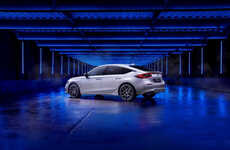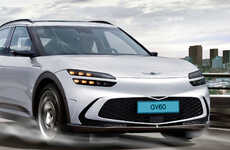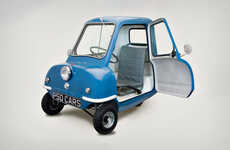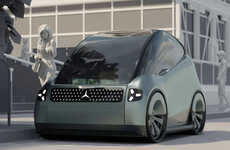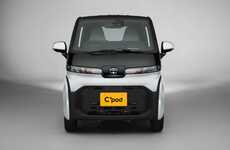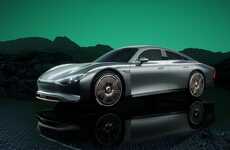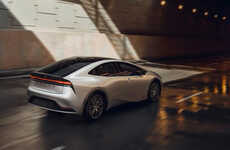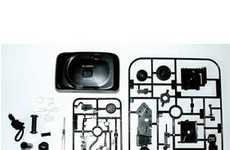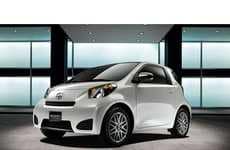
The Modified ‘Aero' Civic Gets 95 MPG
Michael Plishka — February 2, 2009 — Autos
References: aerocivic
Auto companies have a tendency to make grandiose overtures when their designs improve mileage by 5 or 10 mpg. They speak of the problems encountered in improving technology, how things just can’t be done without radical changes and an increase in cost.
Well, Mike Turner took $400, some elbow grease and a 1992 Honda Civic and and modified the aerodynamic drag (the friction between the air and the car). The result is a car that slips through the air, averaging 95 mpg at 65 miles per hour.
Its resistance to the air is below that of the Toyota Prius! This car is so slick, bugs, road splatter and even deer fly over the car without splattering the windshield.
His inspiration?
German cars of the 1930’s, in particular a 1939 Maybach that has very similar lines to his Civic.
While we could say auto companies have some explaining to do, perhaps they just need to start engineering…
Well, Mike Turner took $400, some elbow grease and a 1992 Honda Civic and and modified the aerodynamic drag (the friction between the air and the car). The result is a car that slips through the air, averaging 95 mpg at 65 miles per hour.
Its resistance to the air is below that of the Toyota Prius! This car is so slick, bugs, road splatter and even deer fly over the car without splattering the windshield.
His inspiration?
German cars of the 1930’s, in particular a 1939 Maybach that has very similar lines to his Civic.
While we could say auto companies have some explaining to do, perhaps they just need to start engineering…
Trend Themes
1. DIY Eco-vehicles - The trend of individuals modifying their vehicles to customize and maximize their fuel efficiency could disrupt traditional auto manufacturing.
2. Aerodynamic Modifications - The trend of adding aerodynamic modifications to cars to increase fuel efficiency could disrupt the market for aftermarket car parts.
3. Sustainability - The trend of consumers seeking more sustainable transportation options could disrupt the traditional auto industry.
Industry Implications
1. Auto Manufacturing - Auto manufacturers may need to adapt their technology or risk losing customers to more eco-friendly and customizable options.
2. Aftermarket Car Parts - The market for aftermarket car parts may need to shift towards more eco-friendly and aerodynamic modifications.
3. Sustainable Transportation - Transportation companies may need to shift towards more sustainable options in response to changing consumer preferences.
2.3
Score
Popularity
Activity
Freshness

